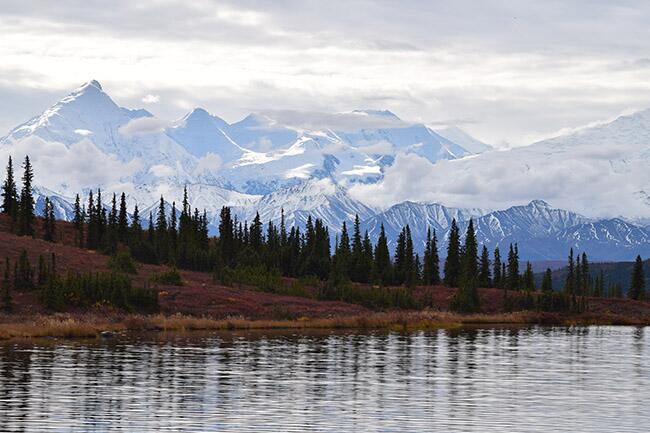Illinois project seeks diverse stakeholder input in deciding Denali National Park’s future

URBANA, Ill. – Who should make decisions about the management and fate of national parks and other protected areas? For a long time, especially in national parks, natural resource management decisions have centered around tourists, leaving local landowners and other stakeholders out of the picture. Now, a movement known as inclusive conservation is bringing local stakeholders to the table, and a research group from the University of Illinois is leading the effort in Alaska’s Denali National Park.
“As part of a new grant from the Joint BiodivERsA-Belmont Forum Call, including funding from the National Science Foundation, we are conducting social science research to establish a process to incorporate multiple viewpoints into decision-making about resource management. Our goals are to open up a dialogue about community preferences for future growth scenarios and listen to different perspectives on social and environmental change in the Denali region,” says Carena van Riper, assistant professor in the Department of Natural Resources and Environmental Sciences at U of I and principal investigator on the Denali grant, along with William Stewart in the Department of Recreation, Sport and Tourism.
Van Riper has been working to identify stakeholders in the Denali region for the last five years. So far, key players include native Alaskans who subsistence hunt and trap inside the boundaries of the park; coal miners and other energy-extraction industries; local business owners; military personnel; teachers; and more.
“It’s just so diverse,” she says. “We’re trying to get these people at the same table to decide what’s important, what should we protect, and how equipped they are to deal with those future scenarios. What are people willing to trade off when they think about future growth of the park?”
Getting all the relevant parties in the same room is a challenge, but it is only half the battle. Van Riper stresses the need to design processes and communication tools to ensure that diverse voices are heard and incorporated into natural resource management in a meaningful way. The research team will rely on interviews, focus groups, and other in-depth communication tactics with residents and agency staff to develop products that will inform park management. These will include policy briefs, public presentations, and even a documentary film highlighting the need for inclusive conservation.
Ultimately, van Riper says, the goal is to provide a robust framework for any land management entity to better understand and incorporate the views of its local stakeholders.
The new grant is part of a larger international collaboration led by Christopher Raymond at the University of Helsinki and funded by BiodivERsA and the Belmont Forum. Collectively, the team will compare the social dynamics around Denali with protected areas in Spain, Sweden, and the Netherlands.
“Although the U.S. came up with the idea of national parks and they are an important part of our identity, Europe is much more integrated when it comes to engagement with local communities. From the U.S. perspective, we could learn a lot from how European parks are managed, and this project will facilitate that conversation,” van Riper says.